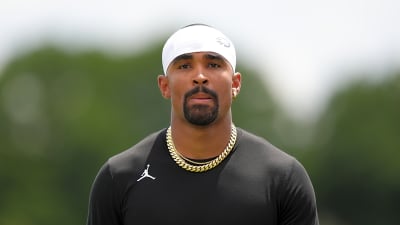
In the summer of 2023, Lucas Paquetá was on the cusp of a blockbuster move to Manchester City. The figures being floated around were eye-watering. Reported valuations placed the fee in the region of seventy to eighty million pounds, which would have made Paquetá one of English football’s highest profile transfers that window.
The deal collapsed after the English Football Association opened an investigation into alleged spot fixing tied to a sequence of yellow cards the midfielder received. The probe cast a long shadow over Paquetá’s career and left West Ham and the player counting costs that were not only sporting but financial and reputational.
The independent commission that later heard the case cleared Paquetá of the four spot fixing charges in July and published a detailed 314-page written judgment that was highly critical of the FA’s investigative work. The document described problems with the FA’s reliance on circumstantial evidence and a lack of independent assessment of betting data. The FA confirmed it would not appeal the commission’s verdict.
What The Judgment Actually Says And Why It Matters
The written reasons carry two connected blows. First, they vindicate Paquetá on the most serious allegations, which, had they been upheld, could have led to lengthy bans and effectively ended a high-value transfer. The panel found no convincing motive for deliberate wrongdoing given the player’s income and character.
Second they expose procedural weaknesses in how a governing body handled a high stakes, sensitive inquiry. The judgment flagged that the FA’s case depended largely on one expert and on circumstantial patterns of betting rather than direct evidence of wrongdoing. That combination left the panel unconvinced that the incidents were illustrative of spot fixing.
Legal scholars and sports lawyers will tell you this is not merely about a single player. How a regulator conducts investigations affects public trust in the system, clubs’ willingness to engage in transfers, and players’ commercial value. When a governing body’s process is found wanting and the cost to a player is immediate and quantifiable, the doors to litigation open wide.
Who Stands To Lose, And Who Might Sue
Lucas Paquetá has publicly kept his options open. His legal team has indicated that nothing is off the table and that they are exploring whether to seek damages for loss of earnings and reputational harm. The reasoning is straightforward. If an agreed transfer collapses because of a process that an independent panel deems flawed, then the player can claim measurable financial loss and damage to career trajectory.
Coverage of West Ham’s position is less straightforward. Some outlets report that the club is considering legal action alongside Paquetá, while others suggest West Ham will not pursue a case for damages. That divergence matters. If the club signs up as a claimant, it would substantially strengthen any litigation because West Ham can point to a lost sale and the financial gap it created in their transfer planning.
If only Paquetá sues the FA, the claim will be narrower and focus on his personal loss rather than club-level commercial losses. Readers should, therefore, be cautious about definitive claims on whether West Ham will sue until the club makes a formal statement.
The Wider Fallout For The FA And English Football
This episode arrives at a tricky moment for football governance. The FA has faced scrutiny across multiple fronts in recent seasons, and a high-profile judgment that highlights investigative weaknesses is reputationally damaging. The commission’s opinion that the FA failed to conduct an appropriately robust, independently verified analysis of betting patterns is likely to prompt internal reflection and possible procedural reforms.
Regulators are expected to investigate suspicious betting patterns. The central question now is how to do so in a manner that protects the integrity of the sport while also safeguarding the rights and careers of individuals.
From a practical perspective, clubs and players will press for greater transparency and faster, cleaner processes. Transfers are time sensitive. A stalled or poorly managed investigation can kill a deal in a matter of days. For players, the harm is immediate. For clubs, the consequences ripple through recruitment plans and financial forecasting.
What Happens Next And What To Watch For
Expect three things in the weeks and months ahead. First, there may be legal proceedings. Paquetá’s camp is consulting lawyers and seeking redress. Whether that becomes a court action or a negotiated settlement remains to be seen.
Second, the FA will have to answer questions about reforming investigative methods. That may include independent auditing of betting data, clearer disclosure procedures, and stronger protections for players while investigations are ongoing. Third, the case will set a precedent. Other players and agents will watch closely. If successful litigation occurs, it would change the risk calculus for regulators who investigate alleged betting irregularities.
Journalists, clubs, and fans should watch for official statements from the FA, any filings in civil courts, and whether West Ham clarifies its position. Coverage to date shows differences in reporting on the club’s intent, which makes an official statement essential for certainty. Meanwhile, Manchester City have been quietly removed from the story as the club that would have signed Paquetá. The idea of the Brazilian playing with the likes of Haaland, KDB, and Rodri remains a dream.
The transfer market rarely forgets a market value that high, and Paquetá’s career trajectory will be a talking point for scouts and executives keen to assess whether his value has irreparably changed.
Final Thoughts
This is a story about far more than the loss of a single transfer. It exposes fault lines in how sports governing bodies handle sensitive, complex matters where financial markets and human reputations collide. If Paquetá and West Ham pursue legal action, they will force a courtroom-style reckoning with the FA’s methods.
If they do not, the written judgment still stands as a warning shot. Either way, the cost is not only the 80-million-dollar transfer value. It is the trust that players, clubs, and fans place in the people who are supposed to protect the game.
More must-reads:
- Key takeaways from USMNT's concerning home loss to Korea
- Aaron Rodgers looks like he has something left in stellar Steelers debut
- The 'College football FBS nicknames' quiz
Breaking News
Trending News
Customize Your Newsletter
 +
+
Get the latest news and rumors, customized to your favorite sports and teams. Emailed daily. Always free!








